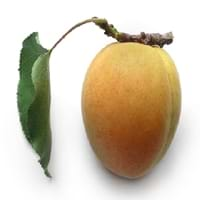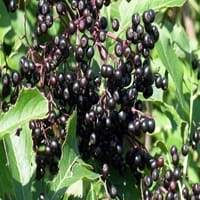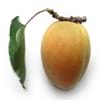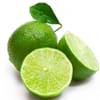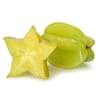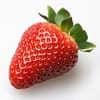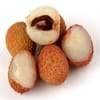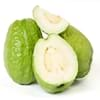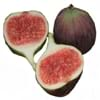Health Benefits
Asthma treatment, Cancer prevention, Controls blood pressure, Digestive aid, Heart care, Maintains hormonal balance, Regulation of heart rate, Skin cleansing, Skin rejuvenation
Cancer prevention, Heart care
General Benefits
Boosts immune system, Controls blood pressure, Digestive aid, Eye care, Maintains healthy cholesterol level, Strengthens bones
Anti oxidant properties, Anti-inflammatory properties, Boosts immune system, Controls blood sugar levels, Cures fever, Digestive aid, Eye care, Fights against infections, Flu treatment, Helps in weight loss, Maintains healthy cholesterol level
Skin Benefits
Hydrates skin, Reduces wrinkles, Treatment of dark spots, Treatment of skin diseases
Anti-aging benefits, Skin rejuvenation
Hair Benefits
Good conditioner, Regulates hair growth, Rejuvenates scalp, Softening mask, Treatment of dandruff
Promotes longer and healthier hair
Allergy Symptoms
Abdominal cramps, Anaphylaxis, Breathing difficulty, Diarrhea, Itching of mouth, Itching sensation in throat, Swelling of mouth, tongue or lips, Vomiting, Wheezing
Abdominal pains, Asthma, NA, Sneezing, Sore throat
Side Effects
Dizziness, Headache, Nausea, Vomiting
Diarrhoea, Nausea, Vomiting
Lactating Women
Yes
Not Available
Best Time to Eat
Best if taken as a breakfast (or empty stomach), As a snack in the late afternoon, Don't consume at night and before bed, Eat the fresh ones, avoid mixing with any other foods, don't eat after meal.
As a snack in the late afternoon, Don't consume at night and before bed, Eat the fresh ones, avoid mixing with any other foods, don't eat after meal., Morning time (before lunch)
Vitamin B5 (Pantothenic Acid)
Vitamin C (Ascorbic Acid)
Vitamin E (Tocopherole)
Not Available
Vitamin K (Phyllochinone)
Not Available
Lutein+Zeaxanthin
Not Available
Phytosterol
Not Available
Calories in Fresh Fruit with Peel
Calories in Fresh Fruit without Peel
Not Available
Not Available
Calories in Frozen Form
Not Available
Not Available
Calories in Canned Form
Not Available
Varieties
Gold Cot, Tilton, Wenatchee, Goldbar, Gold Kist, Tomcot, Harcot, Brittany Gold, Harglow, Hunza, Moorpark, Patterson and Royal Rosa
Adams, Black Beauty, Black Lace, Johns, Nova, Variegated and York
Color
Orange, Yellowish-orange
Black, Red
Inside Color
Yellow
Magenta
Taste
Smooth, Sweet
Juicy, Sweet
Soil Type
Well-drained
Sandy, Well-drained
Climatic Conditions
Dry, Hot
Warm to hot climate
Facts about
- 9 Jan is considered as the National Apricot Day.
- Apricots have been around for more than 4000 yrs.
- In latin, the meaning of apricot is 'precious'.
- 95% of apricots in the US are produced by California.
- According to a superstitious belief, the "elder tree" was supposed to ward off evil influence & give protection from witches.
- Branches from its tree are also used to make fujara, koncovka & other Slovakian flutes.
Top Producer
Turkey
United States of America
Other Countries
Algeria, Egypt, France, Iran, Italy, Morocco, Pakistan, Spain, Uzbekistan
Colombia, India, Mexico
Top Importer
United States of America
Not Available
Top Exporter
France
Not Available
Botanical Name
Prunus armeniaca
Sambucus nigra
Synonym
Not Available
Not Available
Subkingdom
Tracheobionta
Tracheobionta
Division
Magnoliophyta
Magnoliophyta
Class
Magnoliopsida
Magnoliopsida
Subclass
Rosidae
Asteridae
Family
Rosaceae
Adoxaceae
Species
P. armeniaca
S. nigra
Generic Group
Rose
Moschatel
Difference Between Apricot and Elderberry
We might think that Apricot and Elderberry are similar with respect to nutritional value and health benefits. But the nutrient content of both fruits is different. Apricot and Elderberry Facts such as their taste, shape, color, and size are also distinct. The difference between Apricot and Elderberry is explained here.
The amount of calories in 100 gm of fresh Apricot and Elderberry with peel is 48.00 kcal and 73.00 kcal and the amount of calories without peel is Not Available and Not Available respectively. Thus, Apricot and Elderberry belong to Low Calorie Fruits and Low Calorie Fruits category.These fruits might or might not differ with respect to their scientific classification. The order of Apricot and Elderberry is Rosales and Dipsacales respectively. Apricot belongs to Rosaceae family and Elderberry belongs to Adoxaceae family. Apricot belongs to Prunus genus of P. armeniaca species and Elderberry belongs to Sambucus genus of S. nigra species. Beings plants, both fruits belong to Plantae Kingdom.
